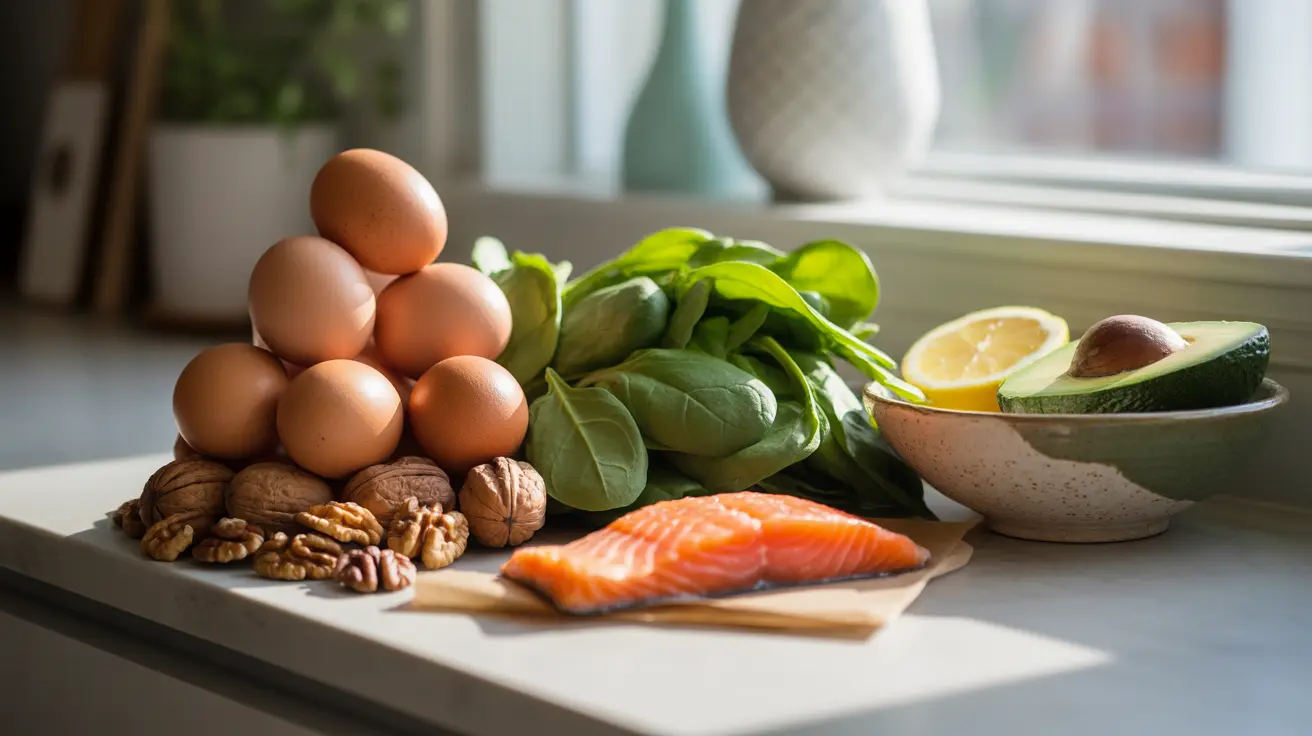Having strong, healthy nails isn't just about aesthetics – it's an important indicator of overall health and nutrition. Understanding which vitamins and nutrients support nail health can help you address common issues like brittleness, splitting, and slow growth. This comprehensive guide explores the essential nutrients your nails need and how to ensure you're getting enough of them.
Key Vitamins and Minerals for Nail Health
Several vital nutrients play crucial roles in maintaining strong, healthy nails. Here's what you need to know about the most important ones:
Biotin (Vitamin B7)
Biotin is perhaps the most well-known vitamin for nail health. This B-complex vitamin helps produce keratin, the protein that forms the structure of nails. Research suggests that biotin supplementation may help strengthen weak, brittle nails and promote healthy growth.
Iron and Vitamin B12
Iron deficiency can lead to thin, brittle nails and unusual shapes. Vitamin B12 works alongside iron to help form red blood cells, which carry oxygen and nutrients to nail beds. Together, these nutrients are essential for healthy nail growth and strength.
Protein and Zinc
Since nails are made primarily of protein, adequate protein intake is crucial for nail health. Zinc supports protein synthesis and helps maintain nail structure. A deficiency in either nutrient can lead to weak nails and slow growth.
Dietary Sources for Nail-Supporting Nutrients
The best way to obtain these essential nutrients is through a balanced diet. Here are some excellent food sources:
- Biotin: eggs, nuts, seeds, salmon, sweet potatoes
- Iron: lean meats, spinach, lentils, fortified cereals
- Vitamin B12: fish, meat, dairy products, fortified plant-based foods
- Protein: lean meats, fish, legumes, dairy products
- Zinc: oysters, beef, pumpkin seeds, chickpeas
Supplementation Guidelines and Safety
While getting nutrients from food is ideal, supplements may be helpful in some cases. However, it's important to approach supplementation carefully:
Always consult with a healthcare provider before starting any supplement regimen, especially if you're taking other medications. Some supplements can interact with medications or cause unexpected side effects when taken in high doses.
Signs of Nutrient Deficiencies in Nails
Your nails can provide valuable clues about potential nutrient deficiencies:
- Brittle or splitting nails: May indicate biotin or protein deficiency
- Spoon-shaped nails: Could suggest iron deficiency
- White spots: Might indicate zinc deficiency
- Ridged nails: May signal various nutritional deficiencies
Frequently Asked Questions
What are the key nutrients essential for maintaining healthy nails, and how can I ensure I'm getting enough of them?
The key nutrients for nail health include biotin, protein, iron, zinc, and vitamin B12. Ensure adequate intake through a balanced diet rich in lean meats, fish, eggs, nuts, and leafy greens. If needed, discuss supplementation with your healthcare provider.
How effective is biotin in strengthening brittle nails, and what is the recommended daily dosage?
Research suggests biotin can help strengthen brittle nails. The recommended daily intake for adults is 30 micrograms, though higher doses (2,000-5,000 micrograms) are often used in supplements. Always consult a healthcare provider before starting high-dose supplementation.
Can deficiencies in vitamins like B12, iron, or magnesium cause nail problems, and how can these deficiencies be addressed?
Yes, these deficiencies can cause various nail problems including brittleness, ridging, and slow growth. Address deficiencies through diet improvements first, and consider supplements if recommended by your healthcare provider after proper testing.
What foods are rich in the nutrients necessary for nail health, and how can I incorporate them into my diet?
Focus on protein-rich foods (meat, fish, legumes), iron sources (lean red meat, spinach), and biotin-rich foods (eggs, nuts). Include these in regular meals through varied cooking methods like salads, stir-fries, and protein-based main dishes.
Are there any risks or side effects associated with taking vitamin supplements for nail health, especially if I'm already taking other medications?
Yes, supplements can interact with medications and may cause side effects if taken in excess. Some supplements may affect blood clotting or interfere with absorption of other medications. Always discuss supplement use with your healthcare provider, especially if you're taking other medications.




